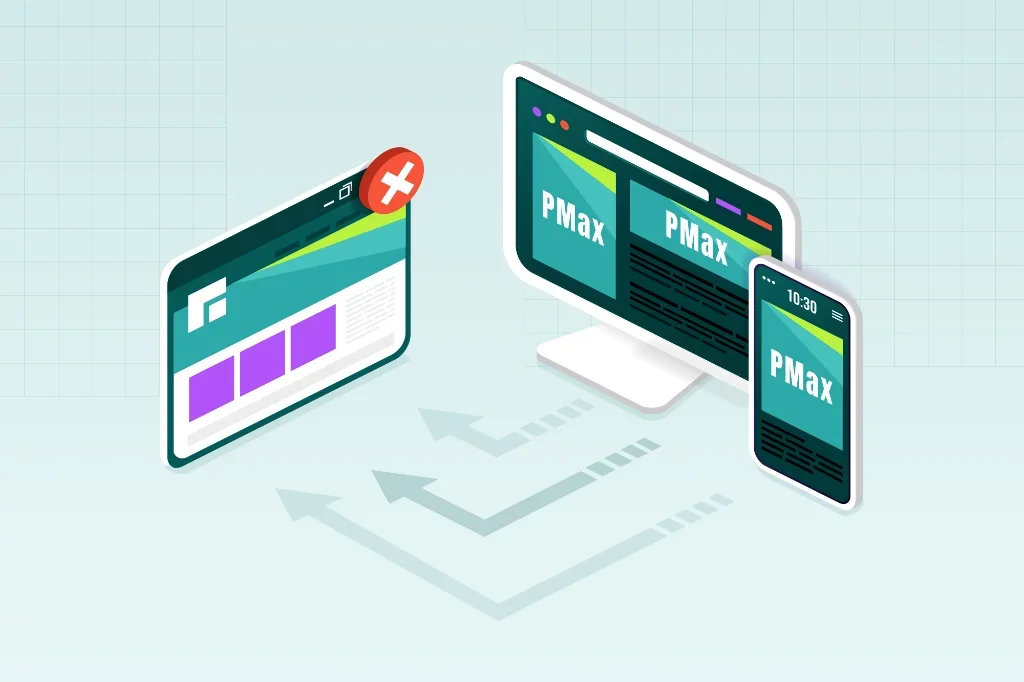Imagine having a line of products or services ready to sell, but your website is like a store with no checkout counter. That’s the challenge many businesses face when they’re prepared to grow online but lack an e-commerce solution tailored to their needs. Choosing the right platform isn’t just a technical decision — it’s a strategic one that affects your visibility, user experience, and long-term revenue.
SEO Subject Matter Expert Mark Greathouse and I chatted about why choosing an e-commerce platform is a critical decision for new e-commerce businesses and established businesses looking to refresh their website. Each platform has benefits and limitations that make them useful for some businesses, but that may be cumbersome for others. This article will help you select the platform that is best for your business’s needs and your capabilities as you add products to your storefront.
Understanding Website Platforms and CMS Options
Thanks to modern tools and technologies, building and managing websites is now more accessible than ever. In the past, creating a site required proficiency in CSS and HTML. Today, a wide range of platforms and content management systems (CMS) are available to meet diverse needs — whether you’re a service-based business or running an e-commerce store.
When selecting the best platform, look at your level of experience and what your business needs. Transferring your website from one platform to another or making radical template changes can be both time-consuming and difficult, especially if you choose a platform above your skill set. Similarly, you may be skillful and knowledgeable, but the platform you select ends up being too limiting. What you wanted to accomplish with the site becomes impossible if it doesn’t have the right capabilities.

What Experience Do You Need to Run a Website?
Ultimately. It depends on which CMS you’re choosing. But there are some that are very, very user-friendly where you could have minimal to no coding knowledge and still be able to set up a simple website for your business’s needs. So really, it comes down to which platform you choose.
When comparing e-commerce platforms, remember that they each have benefits and limitations that make them useful for some businesses, but cumbersome for others. Mark outlined five different options highlighting their benefits, limitations, and best use cases.
Shopify
Most consumers have used an e-commerce site that was powered by Shopify. It’s one of the most common e-commerce platforms. It’s user-friendly and scalable for businesses looking to sell things online.
Benefits | Limitations | Best Use Case |
Ideal for small- to medium-sized businesses | Gets expensive as your business scales | Small- to medium-sized operations |
Strong community support (e.g., Reddit, forums) | Costs extra for specific POS customizations or niche features | Users comfortable navigating backend settings |
Decent built-in SEO tools | Limited flexibility for advanced customizations | Businesses with moderate technical needs |
Simple and scalable site management | Customization ceiling may be reached with growth | Companies not needing heavy design or backend changes |
Allows unlimited products/inventory on many plans | Extra fees for some third-party payment methods | Best for shops with minimal third-party transaction needs |
WooCommerce
WooCommerce is a free plugin for WordPress sites to transform them into an ecommerce site. WordPress is a widely used CMS system. For people already familiar with WordPress, WooCommerce may be a great choice.
Benefits | Limitations | Best Use Case |
Simple and user-friendly | Requires familiarity with WordPress | Business owners already comfortable with WordPress |
Highly customizable (open source) | Managing plugins can become complex as the site scales | Users seeking affordable and flexible customization |
Rich with community plugins | Site structure must be actively managed with plugin use | Businesses needing modular functionality and customization |
Great for those with coding skills | May require technical expertise for advanced features | Developers building tailored solutions on WordPress |
Extensive theme and feature options via plugins | Relies heavily on third-party plugins for features like e-commerce | SMBs with moderate web experience needing specialized features |
Wix Stores
Wix Stores is built off Wix, so this is one of the most user-friendly ecommerce website platforms available.
Benefits | Limitations | Best Use Case |
Simple, user-friendly interface | Design and layout options are limited | Users with minimal web knowledge |
No coding or web-building experience needed | Template selection is locked once chosen | New business owners launching an online store |
Intuitive drag-and-drop editor | Limited flexibility in site structure | Businesses starting with a clean, simple storefront |
Real-time editing and preview | Lacks advanced features and extensibility | Beginners exploring CMS platforms |
Accessible for non-technical users | No plugin support | Users who don’t require add-ons or third-party integrations |
Easy entry into online selling | E-commerce only supported through Wix Stores and higher-tier plans | Those testing e-commerce with basic needs and budget flexibility |

Best Use Case for Wix
The best use case by far is folks who are very limited in their web knowledge. You know, this is new to them. They’re starting a business online. Or maybe they’ve operated a brick-and-mortar store, and they want to move some things online, but don’t really know where to start. Wix stores can be a great option for you just to kind of dip your toes in and get used to working in CMS’s and especially if you’re operating a store with a clean storefront that doesn’t need a ton of features.
Squarespace
Squarespace is another user-friendly option for new startup businesses that lack experience with creating websites.
Benefits | Limitations | Best Use Case |
Simple and user-friendly | A little inflexible and limiting | It’s very similar to Wix. It’s for people who are operating a small business and likely also have a brick-and-mortar store who are looking to move some or all their business online |
POS integrations in all its plans | More frustrating for experienced business owners if familiar with working in website backends | Don’t need complete web knowledge. Offers a simple, clean storefront without all the extra features. |
Businesses who also sell in stores can easily modernize and keep their sales together | If you sell something unique that requires various shipping methods, it can be tedious. | Great to get started with a CMS, especially if you’re operating a store with a clean storefront that doesn’t need a ton of features |
Helps keep your books pretty simple | Limited SEO options | Popular with service businesses that don’t need an elaborate storefront |
BigCommerce
BigCommerce is a professional ecommerce website platform that offers advanced features and capabilities compared to other platforms.
Benefits | Limitations | Best Use Case |
Advanced capabilities for scaling businesses | Steep learning curve; not user-friendly for beginners | Medium to large businesses focused on e-commerce growth |
Robust feature set for online selling | Limited free templates; premium designs often cost extra | Businesses planning to scale with more advanced features |
Faster scaling without reliance on plugins | Revenue caps on certain pricing tiers | Growth-focused companies with increasing product |
Unlimited inventory support | May require plan upgrades as business expands | Stores with extensive product lines |
Does not charge transaction fees because it does not have a native payment gateway | Requires third-party payment setup, which can be complex for new users | Experienced users comfortable with external integrations |
Key Considerations When Choosing an E-Commerce Platform
Before diving into platform options, reflect on these foundational questions:
How large is your business? What’s your team’s technical comfort level (e.g., with coding or backend management)? And most importantly, what’s your ultimate goal for the site: growth, ease-of-use, control, or speed?
Once you’ve clarified those basics, evaluate potential platforms using these six essential criteria:
- Selling Location
- Will you sell online only, operate a brick-and-mortar store, or do both?
- Choose a platform that supports your primary sales channels and can scale with new ones.
- Point of Sale (POS) Integration
- Does the platform sync with your POS system?
- A good integration streamlines operations, centralizes inventory, and reduces manual tasks.
- Shipping Requirements
- Are there product-specific shipping needs (e.g., perishable, oversized)?
- Investigate built-in shipping tools and cost transparency for custom rates or carriers.
- Design Flexibility + Branding
- Do you need advanced customization, or will a simple template suffice?
- Look for platforms that support your branding goals—from colors and fonts to layout and UX.
- Scalability for Growth
- Are you planning rapid expansion?
- Ensure the platform can handle increased traffic, products, and complexity over time.
- Ease of Use for Your Team
- Is your team tech-savvy enough to manage a CMS?
- If not, opt for a drag-and-drop builder or a solution with low-maintenance backend tools.
Pick the E-Commerce Platform That Best Meets Your Needs
We’ve detailed some of the most popular e-commerce sites and what they offer. It’s never a one-size-fits-all scenario. The best e-commerce platform is going to come down to your business’s needs and your comfort level with website backend.

Features to Look for in an
E-Commerce Platform
Ultimately, it’s going to look at what your business is needing. So you know, ultimately you will have to ask yourselves: do you sell online and in store, or just online? Do you want those systems to be, or your POS systems to be easily integrated? Does your product require special shipping processes that might increase the cost per transaction?
What style or aesthetic does your store need? Does your business have strict brand standards? Or are you able to operate off of templates that maybe exist on these platforms already? And then how proficient are you with a website platform? Are you comfortable with maybe getting into the weeds a little bit with some of these platforms? Or do you need things to be just a little bit simpler and easier to understand. Ultimately, it’s choosing the best platform comes down to understanding your business’s needs and your business’s capabilities when it comes to building a website that can scale with you as you continue to grow your business.
Look for a style the fits your store and that works with your brand standards. If you can be nimble, then think more about how proficient you are with a website platform. There are great options that are workable for nearly every situation. Happy e-commerce platform searching!
“Ultimately, it’s choosing the best platform comes down to understanding your business’s needs and your business’s capabilities when it comes to building a website that can scale with you as you continue to grow your business.”









